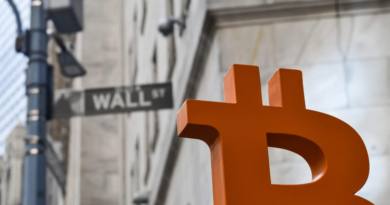Despite soaring jobs market, major U.S. retailers warn consumers are puling back
Investors on Friday were treated to blowout labor market data and an end to the weeks of debt ceiling turmoil, lifting the Nasdaq past its August peaks to mark a fresh 52-week high.
Beneath the surface, however, one sector is already sounding the alarm about the health of the U.S. economy: retailers.
“The U.S. consumer, particularly at Macy’s, pulled back more than we anticipated,” CEO Jeff Gennette said on Thursday, after breaking the news to shareholders it needed to lower its full-year forecast.
That same day, Dollar General also reported bleak news, slashing its sales outlook from 3% to now just 1% to 2% growth with earnings expected to decline by 8%.
“Unfortunately, our customers are saying they’re having to rely more on food banks, savings, credit cards,” CEO Jeff Owen said on a call.
Last week, it was the turn of retail peers Dollar Tree and Costco to be the bearers of bad tidings.
This doesn’t even include those companies subject to consumer boycotts, like Target, whose stock fell to multiyear lows in part owing to backlash over its Pride Month merchandise.
Former Home Depot CEO Bob Nardelli said a rising problem that needed to be addressed is what the industry refers to as “retail shrinkage”—shoplifters grabbing items and running.
“That’s one of the pressures,” he told CNBC. “The other pressure…we still have, of course, is inflation is still high. We see [debt from] consumer credit cards is about $1 trillion right now, and all of those things are converging to what I call a tsunami of challenges.”
Last month, data from the Census Bureau showed retail sales—which are not adjusted for inflation—eked out growth of just 0.4% in April, roughly half of what economists had anticipated. Include the 0.4% increase in consumer prices and consumer demand essentially stagnated.
Rosy jobs report
The comments clash with a rosy jobs report that saw closely watched nonfarm payrolls surge by 339,000 in the month of May, far more than the 190,000 anticipated by economists. While more reflective of concrete fluctuations in the labor market than the household survey used to calculate the unemployment rate, the data is however subject to revision.
Marc Rowan, CEO of private equity firm Apollo Global Management, had a name for this confusing mix of economic signposts: “a non-recession recession.”
For now, it seems that only Walmart has been able to navigate the choppy waters.
“Shoppers are clearly pulling back on nondiscretionary purchases as they look to recalibrate and rebalance their budget,” said Bryan Gildenberg, a managing director at industry research firm Retail Cities, in an interview with CNBC.



